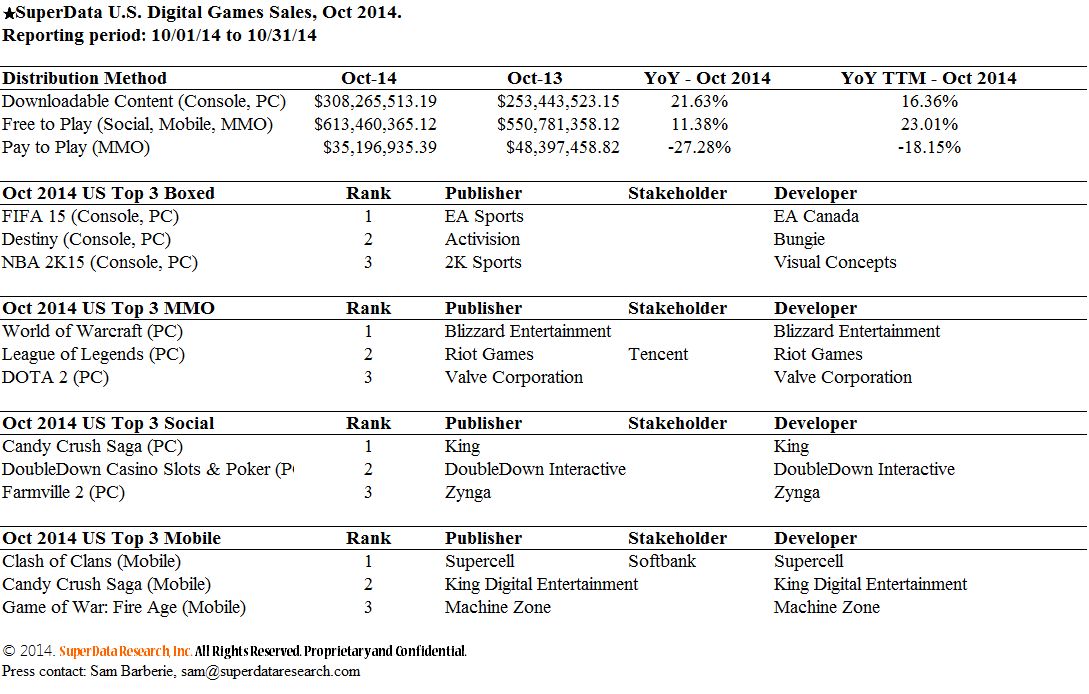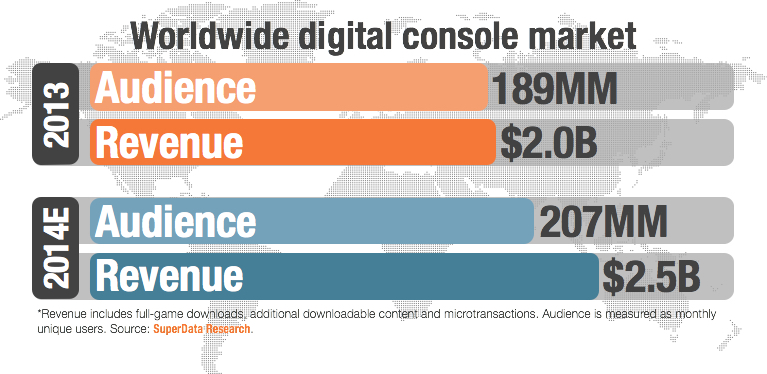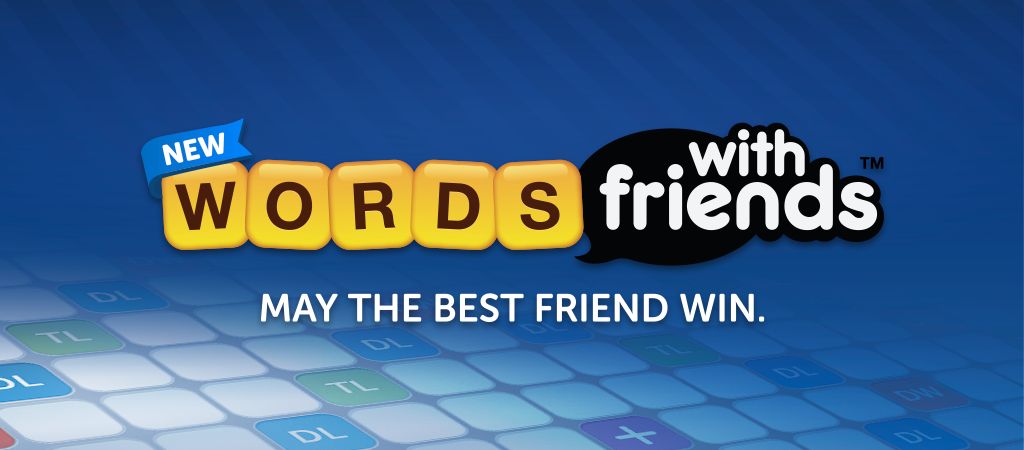As the mobile games business continues its upward trajectory, it’s useful to examine the growing number of companies that actually report their financial results on a regular basis — the publicly traded mobile game companies. It’s true that private companies generate the majority of the revenues in the mobile games business, but observing the public results can help us judge the health of the sector.
Overall, the results are encouraging, as most of the companies reported making good profits from mobile games. Still, Tencent did show a slowdown in its mobile games revenue in the huge China market, and the game giant will be redoubling its efforts as well-funded competitors like Alibaba (which recently teamed up with Kabam) attack its market share. Zynga is still making the transition to a mobile game company from social games, and it’s still losing money on that journey. King Digital is still hauling cash to the bank, but the company is coming off the sugar rush induced by Candy Crush Saga.
It looks like the companies that have managed to build themselves a huge audience for mobile games are increasingly able to come up with revenue from that audience. While hits are still unpredictable, building regular release schedules of solid titles is a sound business strategy if you can keep your costs in line. When the occasional huge hit comes along, like Kim Kardashian: Hollywood, results will look great for a time. Companies that can resist the temptation to expand too much on the basis of such a hit have a good future ahead of them.
King Digital reported lower revenues as Candy Crush Saga continues to lose its sweetness, but the company still generated $144 million in cash, and non-Candy Crush games were responsible for 49 percent of the company’s revenue. Non-GAAP revenues of $543.9 million were down from last year’s $648.2 million, and the profit of $177.4 million was down from $229.2 million last year.
“With the launch of two new mobile games during the third quarter as well as the Facebook version of Candy Crush Soda Saga last month, we are continuing to execute on our strategy to develop a portfolio of games for our massive network of players,” said King CEO, Riccardo Zacconi. “We have a consistent track record of developing successive hit games and as a result, have increased our non-Candy Crush Saga gross bookings to $264 million in third quarter 2014. If annualized, this represents more than a $1 billion run rate, and makes our non-Candy Crush Saga business larger than most every other mobile gaming company.”
Glu Mobile, riding high on the success of Kim Kardashian: Hollywood, reported record revenues for the third quarter. Non-GAAP revenues hit $83.6 million, up 270 percent from last year and 138 percent from the previous quarter, with earnings of $15.4 million.
“Glu’s third quarter was the strongest in the company’s history as non-GAAP revenue and Adjusted EBITDA set all time records,†stated Niccolo de Masi, Chief Executive Officer of Glu. “The record quarter was driven by the strength of Kim Kardashian: Hollywood, our new releases Dino Hunter: Deadly Shores and Tap Sports: Baseball, ongoing traction with Deer Hunter 2014 and Eternity Warriors 3 and the addition of Racing Rivals to our product portfolio.”
Zynga, in the midst of its transition to a mobile game company, reported non-GAAP bookings of $175.5 million, and a non-GAAP loss of $6.7 million. Compared to the prior year, Zynga has reduced its losses and halted the erosion in its user base, while mobile bookings represented 55 percent of the total. Zynga’s stock jumped nearly 11 percent in one day after analyst firm Jefferies changed the stock from “hold” to “buy” based on the new release of Words With Friends and the company’s upcoming slate of titles.
“I am encouraged by the results of the quarter as we navigate through this time of transition. In Q3, we reported bookings at the high end of our guidance range and Adjusted EBITDA near the midpoint of our guidance range. Our teams have been working hard over the last year to reshape our business and we are seeing that work show up in two important areas – our franchise bookings and mobile bookings growth. Last quarter, our core franchises — Casino, Words With Friends and FarmVille — grew 30 percent year over year in terms of bookings, and we achieved meaningful growth in mobile with a 111 percent increase in mobile bookings annually,” said Don Mattrick, CEO of Zynga.
Chinese giant Tencent, which derives the majority of its revenues from games, reported a 28 percent rise in revenues ($3.2 billion from all sources) and a 46 percent rise in profits (to $923 million), though both numbers disappointed investors by missing the estimates, due largely to slowing revenue from mobile games (which generates more than half the company’s sales). Revenue from its mobile-gaming business declined to 2.6 billion RMB, compared 3 billion RMB in the previous quarter. Furthermore, WeChat’s monthly active users rose just 6.8 percent during the quarter to 468 million monthly active users, its most sluggish growth since Tencent first started releasing user numbers. Tencent had warned investors back in August that it expected its mobile gaming revenue growth to level out temporarily as it works on adding more titles and integrating e-commerce services.
Korean mobile game publisher Gamevil reported revenues of $38.9 million (over 100 percent growth) with a net profit of $8.9 million (almost 450 percent growth). The publisher cited the success of titles like Dragon Blaze domestically and globally pointed to MLB Perfect Inning and Monster Warlord. It should be noted that about a year ago, Gamevil acquired one of its earliest competitors Com2uS, which is still reporting its own earnings separately. Just yesterday, Com2uS announced a record quarter with $40 million in profit, partially thanks to Summoners War.
Gameloft reported sales dipped by 10 percent in the third quarter to $69.3 million. Despite the sales decline in Q3, Gameloft boasted that it was the worldwide number one developer and publisher on iOS and Google Play by downloads according to App Annie’s worldwide index for games.
“After several quarters with a low number of releases, Gameloft has returned to launching new games at a more regular pace. While this is not yet apparent in the quarterly sales, we believe it will progressively start showing in the coming quarters and accelerate throughout 2015,” stated Michel Guillemot, CEO of Gameloft.




